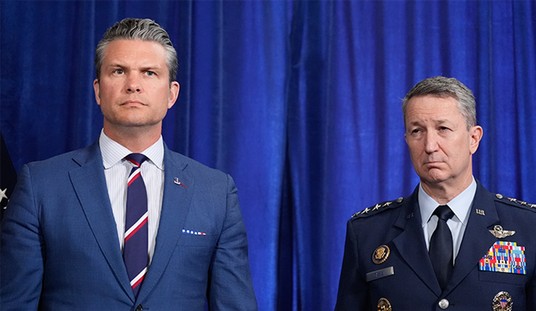War is – and always will be -- hell. The Law of Armed Conflict is not meant to change that – only to make it a little less hellish. There are weapons you agree not to use. In exchange, your enemy doesn’t use those weapons against you. You treat captured combatants humanely. You expect the same when your soldiers are taken prisoner.
It’s a rational and enlightened concept and, in the global war of the 21st century, it has failed spectacularly. Those who call themselves jihadis feel bound only by their reading of Islamic law – not by the Geneva Conventions and other international obligations and restrictions.
Some people find this simple truth elusive. Recall the widely publicized 2004 exchange between then-Senator Biden and then-Attorney General John Ashcroft. The former impatiently instructed the latter as to why he considered it vital that the United States not use coercive interrogation methods -- torture, in his view and that of others – against al Qaeda militants.
“There’s a reason why we sign these treaties: to protect my son in the military,” he said. “That’s why we have these treaties. So when Americans are captured they are not tortured. That’s the reason. In case anybody forgets it. That’s the reason.” It appears not to have occurred to Mr. Biden that al Qaeda recognizes neither international agreements nor the logic of reciprocal restraint.
In theory, this creates a conundrum: Should Western militaries continue to abide by rules their enemies flout? In practice, there is no debate: Combatants from democratic societies aspire to conduct themselves morally and honorably -- irrespective of the barbarity exhibited by their enemies. Those enemies are not shamed by this disparity -- they are encouraged by the advantages that accrue to them.
Recommended
The High Level Military Group – which includes former senior officers from the US, the UK, India, Australia, France, Spain and Colombia -- has set itself the task of exploring “the implications for democratic nations of warfare against enemies who have a total disregard for life and law, but who actively exploit our own nations’ adherence to the rule of law for strategic and tactical gain.” The HLMG was organized last year by the Friends of Israel Initiative, among whose founding members are former Spanish President Jose Maria Aznar, former Australian Prime Minister John Howard and former Peruvian President Alejandro Toledo.
This month, the HLMG published a study that reaches distressing conclusions. In particular, troops fighting jihadi forces “are exposed to greater danger, and indeed die, as a result of the care taken to fight according to our laws and values.”
The study also found that “irregular and terrorist adversaries” often display “an extraordinarily well developed ability to exploit communications technology and the media in order to influence the battle over political narratives to strategic effect.” In other words, in the war of ideas, the jihadis are paying little or no price for their bestiality.
A separate study completed by the HLMG last October looked specifically at the 2014 conflict between Israel and Hamas where it found perhaps the most egregious “perversion of our current legal system.”
“No matter how effective and lawful the Israel Defense Forces’ (IDF) conduct,” the study concluded, “there is always a barrage of allegations against it. Concepts like ‘crimes against humanity,’’ ‘genocide,’ and accusations in bodies like the UN and the International Criminal court, are widely and readily used for the purpose of gaining political advantage.”
The HLMG found that these charges lack merit, that “Israel’s conduct in the 2014 Gaza Conflict met and in some respects exceeded the highest standard we set for our own nations’ militaries.” Meanwhile, Hamas “not only flagrantly disregarded the Law of Armed Conflict as a matter of course as part of its terrorist-army hybrid strategic concept, but rather it abused the very protections afforded by the law for military advantage.”
Among other things, Hamas targeted Israeli non-combatants and used Palestinian non-combatants as human shields. “Hamas’s strategic concept actively seeks the death of its own civilians as an advantageous reinforcement of its strategy aimed at the erosion of Israel’s legitimacy,” the HLMG found.
The HLMG cites “coercion of Gaza based journalists,” “ideological motivation” and “the absence of the appropriate military and legal expertise and judgment” as factors contributing to bias against Israel and in favor of Hamas, an self-proclaimed jihadi organization openly committed to Israel’s extermination.
One aspect of Israeli conduct does worry the HLMG: The IDF goes so far beyond what is required under the Law of Armed Conflict in its efforts to prevent collateral damage that it may be setting new norms of warfare that other Western nations will be expected to emulate.
For example, the Israelis often drop leaflets and dummy bombs on buildings being used by Hamas for military purposes in order to induce occupants to leave. Sometimes they will even phone individuals and advise them to seek safety.
The Israelis can do that because Gaza is relatively small and Israeli intelligence has focused on its population for years. But if allied forces were to decide, for example, to strike the Islamic State in its de facto capital of Raqqa, they could not possibly take similar precautions.
The global conflict now underway is often called “unconventional.” Among the ways that is true: The West has decided to fight with half measures while attempting to “address the grievances” of their enemies and those who might be inclined to join them.
The jihadis, by contrast, mean to win. They are prepared to do whatever it takes. An unprecedented experiment is underway. Upon its outcome rests the future of the West.


